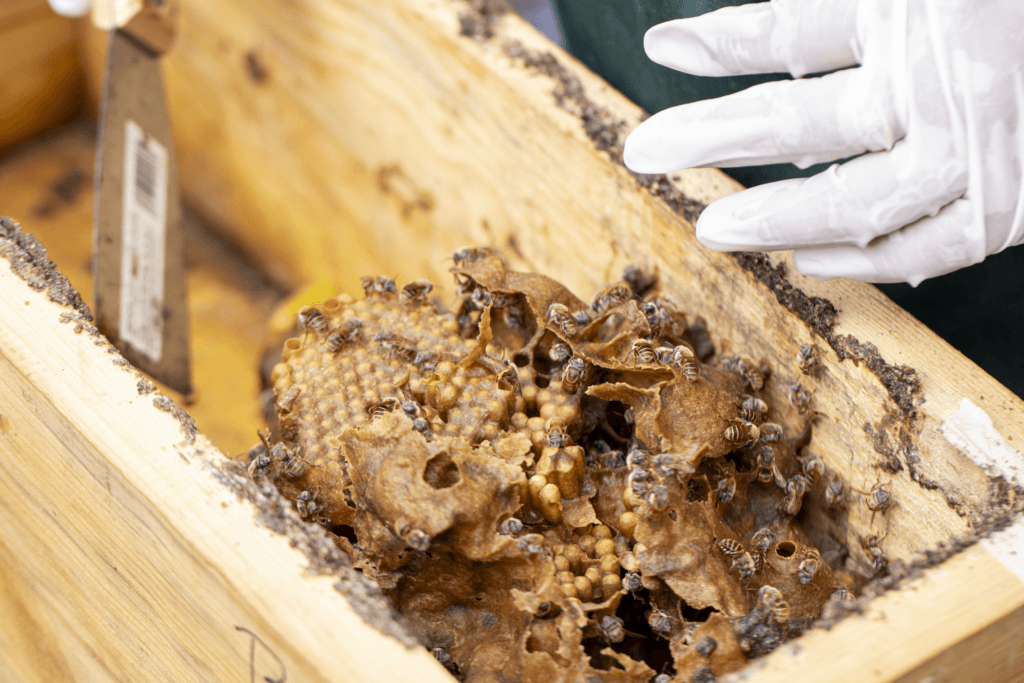CANCUN, Quintana Roo — Honey from the Yucatán Peninsula is closer than ever to earning a Designation of Origin, recognizing its distinct quality, rooted tradition, and cultural significance. Producers, scientists, and officials from Yucatán, Campeche, and Quintana Roo are wrapping up the technical framework—covering everything from extraction methods to packaging and demarcating the geographical zone—needed to finalize the application.
With nearly 1,900 beekeepers in Quintana Roo alone, producing 2,900 tons of honey in 2024, the region’s apiculture industry is remarkably robust.
Producers, authorities, and researchers from Yucatan, Campeche, and Quintana Roo convened recently to finalize the technical details required to submit the official application. The initiative aims to protect the peninsula’s honey and open more doors for it in national and international markets.

A Legacy Rooted in Maya Culture
Beekeeping in the Yucatán isn’t new—it stretches back millennia. The ancient Maya were the first to cultivate the stingless bee, Melipona beecheii, known in their language as Xunan-Kab, or “lady bee.” They kept hives in hollow logs (jobones) and revered honey as a sacred elixir used in rituals, medicine, and as tribute to deities such as Ah-Muzen-Cab, the Maya god of bees and honey.
Following Spanish colonization, European honey bees (Apis mellifera) were introduced. These species now dominate honey markets but carry environmental risks—pesticide exposure, deforestation, and habitat loss have contributed to a 93% decline in Melipona populations over recent decades.
What DOO Means for the Future
If the Designation of Origin is secured, the honey from the Peninsula will not only become an export product with added value but also a symbol of identity and pride for the Maya region. Gaining the Designation of Origin safeguards local beekeepers from market competition, helps build global recognition, and ensures higher prices for authentically produced honey.
For the future of the Maya stingless bees, the DOO could revitalize an ancestral practice of meliponiculture—raising Melipona bees—preserving biodiversity and cultural knowledge. For European honey production, it pushes for sustainable methods that coexist with native species.
What Happens Next
The outcome hinges on continued cooperation across the three states. If granted, the DOO will strengthen economic resilience for rural and Mayan communities, offer premium market access, and reinforce cultural pride.
During the meeting, working groups were established to define how the product should be described, including its packaging, extraction sites, and the distinct geographical zone. All of this will serve to provide technical backing for the project.
The head of the Secretariat of Agricultural, Rural and Fisheries Development (Sedarpe), Jorge Aguilar Osorio, emphasized that this effort is an example of teamwork between neighboring states, with the objective of creating more opportunities for rural and beekeeping communities. “Designation of Origin will not only boost exports—it becomes a symbol of Maya identity and the living bond between communities and their bees.”
Discover more from Riviera Maya News & Events
Subscribe to get the latest posts sent to your email.
